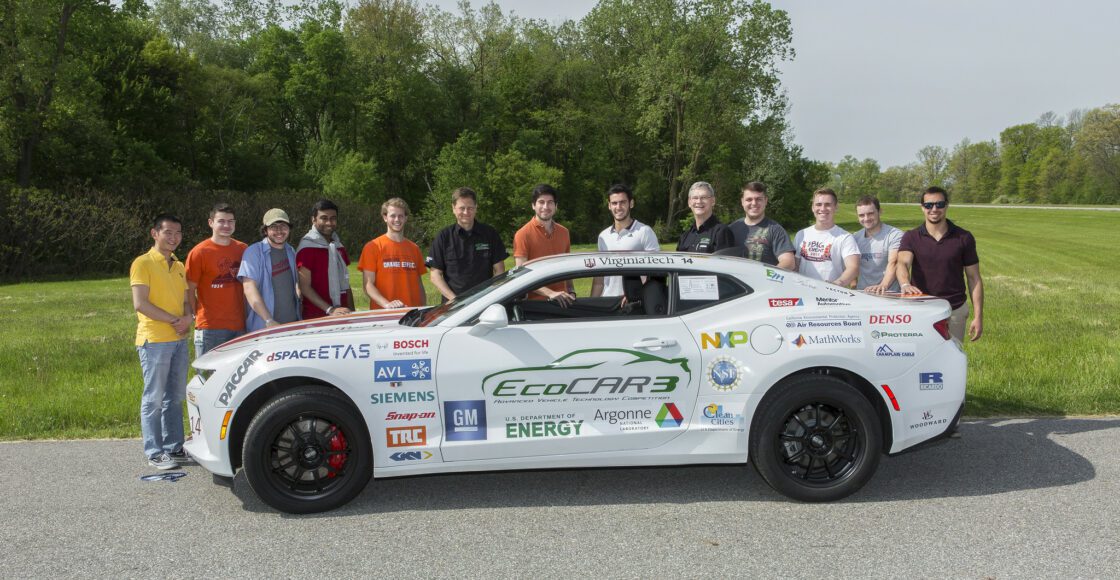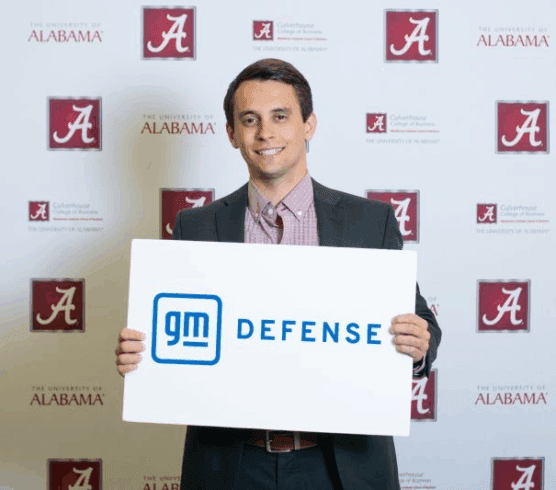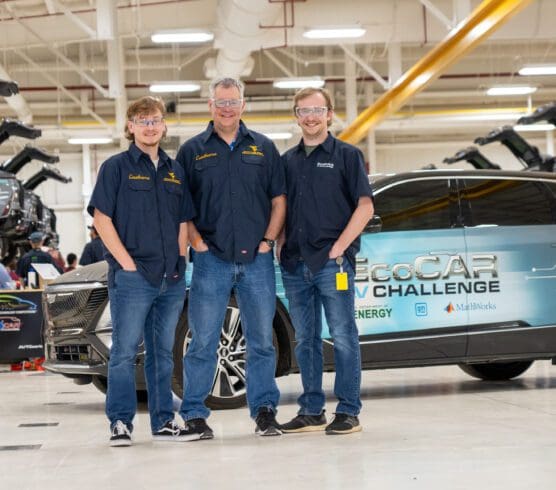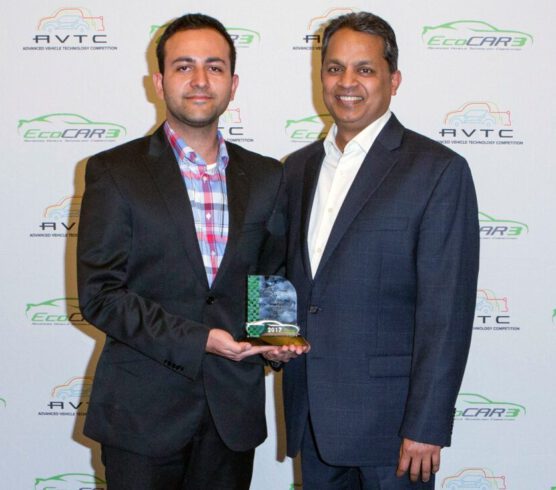Henning Lohse-Busch has been a self-proclaimed “car guy” all his life. When he moved to the US from France to go to college at Virginia Tech, he found Virginia Tech’s FutureTruck team and immediately felt right at home. FutureTruck was the advanced vehicle technology competition (AVTC) series that took place from 2000-2004 and was an early predecessor to the current AVTC series, EcoCAR. While working with the team, Henning discovered his passion for hybrid and alternative vehicles, and once he was “bitten by the FutureTruck bug,” he never looked back. In his first year with the team he was enthralled with the multitude of challenges and opportunities offered by the FutureTruck project. He spent almost every weekend and many late nights working on the fuel cell system for the competition and confirmed that this work was truly his calling. Later, he became team leader and, together with his dedicated team, developed Virginia Tech’s hydrogen internal combustion hybrid electric competition truck. Henning completed his Master’s degree in Mechanical Engineering at Virginia Tech and attributes much of his academic success to the lessons he learned while working on the FutureTruck team.
Through the connections he made while on the FutureTruck team, he was offered a job at Argonne National Laboratory’s Center for Transportation Research. He joined Argonne in 2004 as a research engineer, where he says he spends his day ‘playing with cars’ to advance transportation research. At Argonne, he started in the Hardware-In-the-Loop area, where he developed the Modular Automotive Technology Testbed. This versatile research tool enables the researcher to evaluate different automotive technology components in a hybrid vehicle system environment. With a special scalable energy storage and virtual inertia traction motor, the testbed can emulate everything from a Plug-in hybrid vehicle to a classic conventional vehicle. Henning also benchmarks advanced technology vehicles at Argonne’s Advanced Powertrain Research Facility.
Henning credits involvement in the competition with the opportunity to experience all facets of the automotive process, from initial design to hardware implementation. Henning also enjoyed applying classroom knowledge to hybrid vehicle design, but maintains that the real learning came from the ‘trial and error’ involved in implementing hardware in a real vehicle. He says the competition enabled him to go beyond the class room and past the “answers in the back of the book” and forced him to ask his own questions and figure out how to implement the answers in hardware.
Henning recently obtained his Ph.D. in mechanical engineering from Virginia Tech. His dissertation is titled “Development and Applications of the Modular Automotive Technology Testbed (MATT) to Evaluate Hybrid Electric Powertrain Components and Energy Management Strategies.” His doctorial work was a natural continuation of what he started by joining the advanced vehicle student competitions. Henning also frequently gives back to the AVTC program. He is a familiar face at competition events, where he has worked as a vehicle safety inspector, judge, event organizer and pit coordinator for the EcoCAR competition. Henning credits his success to the invaluable experience he gained in the AVTC program and for the special guidance and mentoring of his professor, Dr. Doug Nelson, who was the FutureTruck team’s faculty advisor and Henning’s PhD advisor.




